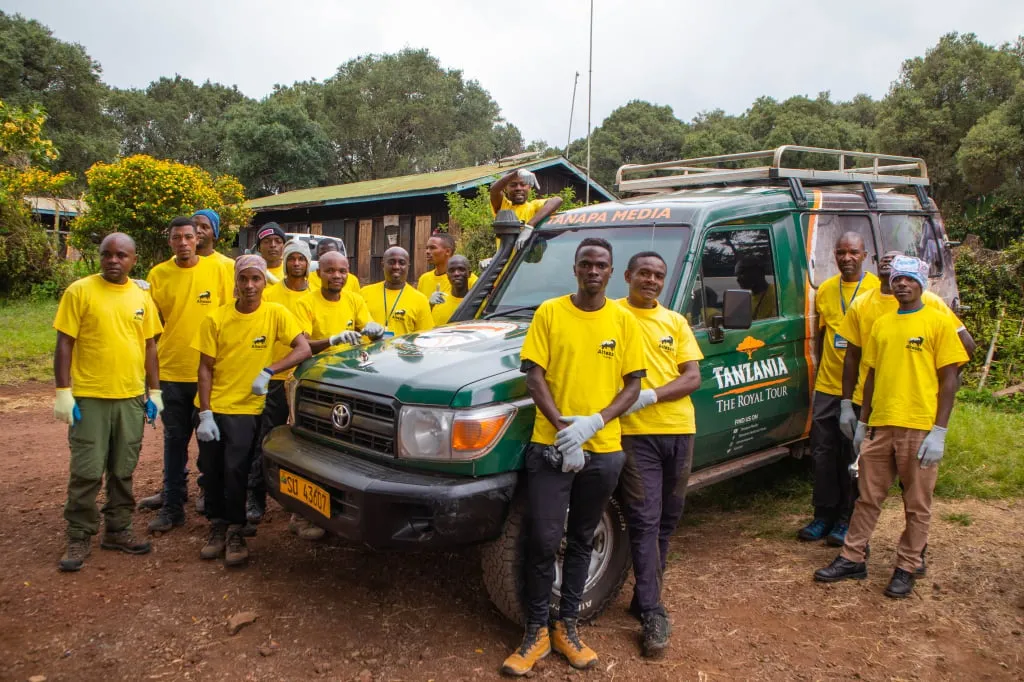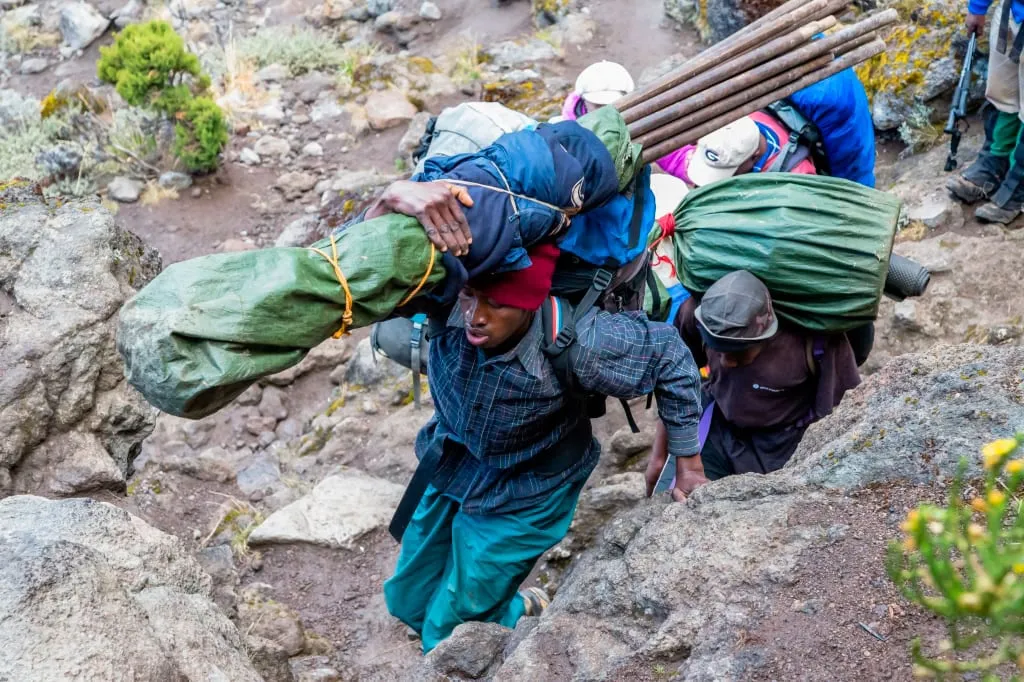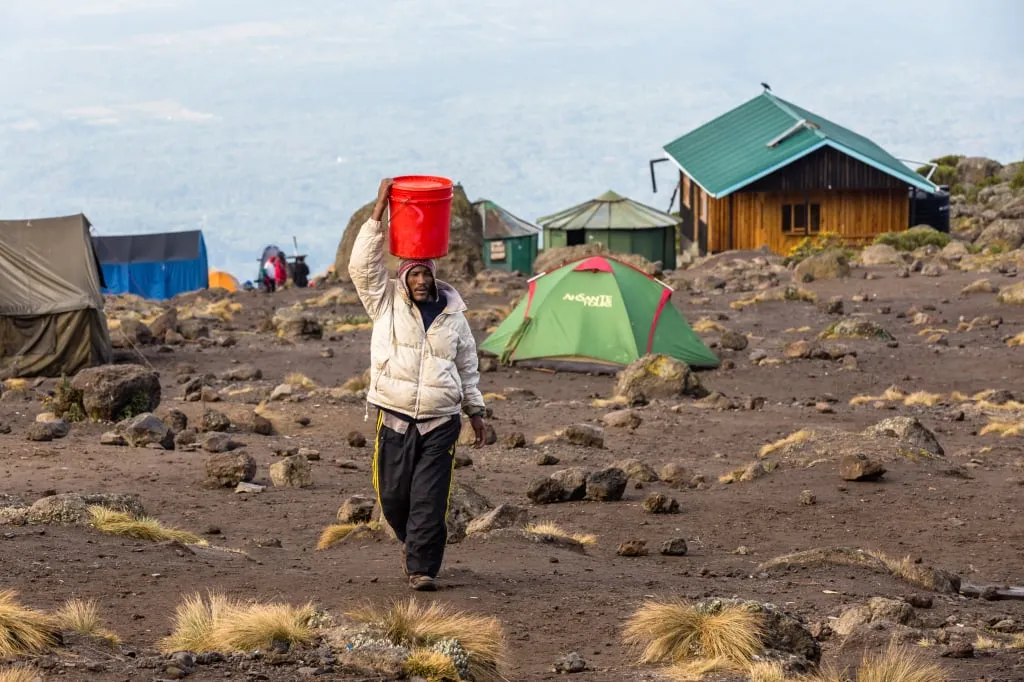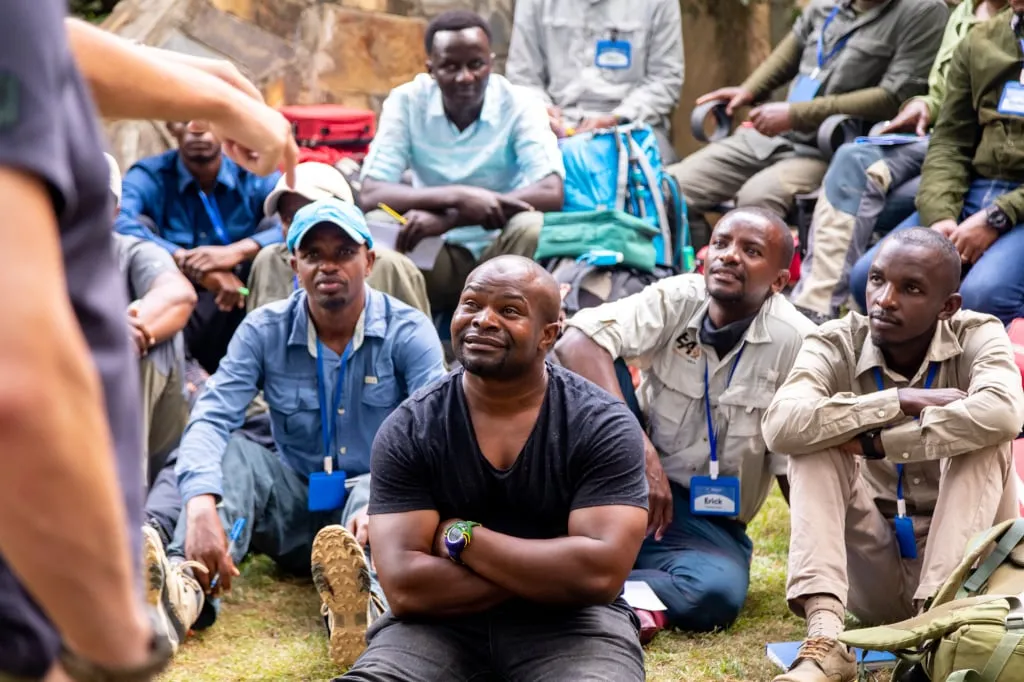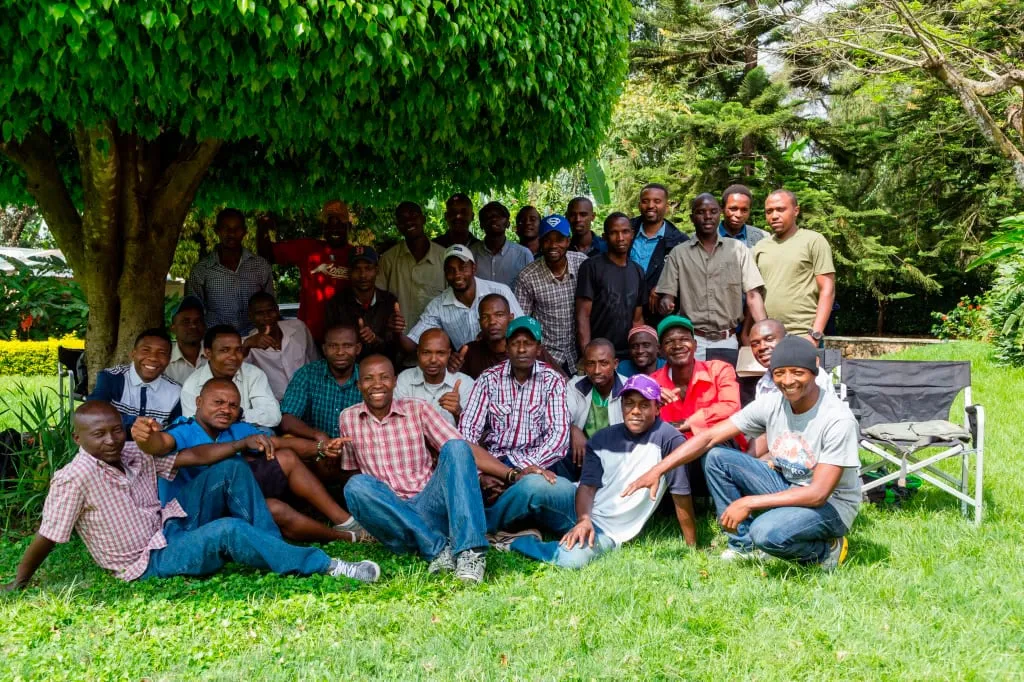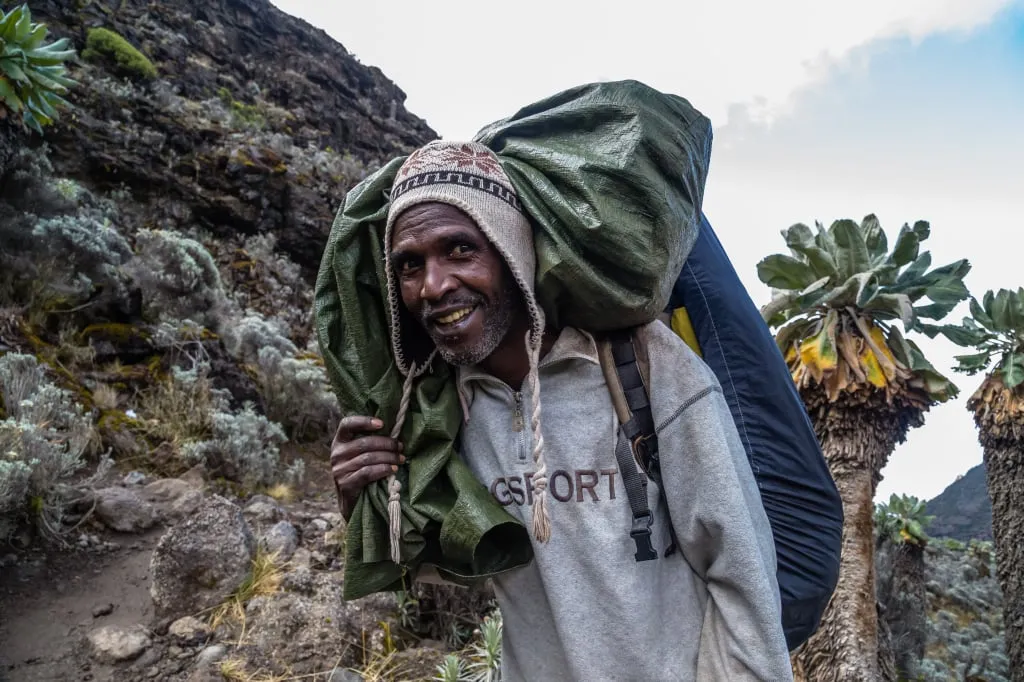What is the appropriate tipping amount and who is to receive the tip for the Kilimanjaro climbing expedition? How do you make sure that your gratuity has reached the mountain crew and that the money has been spread out fairly? Not less importantly — what is the right way to safeguard your tip from being misappropriated by a tour operator? Find out in this article and become familiar with Altezza Travel tipping policy.
Tipping Traditions
The end of a climbing expedition is usually followed by a tipping ceremony in many places across the globe. This is the case for Nepal, Peru and many other countries with mountain peaks that captivate and draw climbing enthusiasts. It is not something mandatory that the guides or the organizing company have the right to demand from you, but rather a gratitude for a well-run climbing expedition that required joint 24/7 effort and care from an entire team. The amount of the tip should depend not on the cost of the tour, but on the experience you received.
The following tips are commonly recommended for Kilimanjaro expeditions:
- classic climbing expedition — $ 250–300;
- premium climbing expedition — $ 400–600.
The difference is attributed to the fact that a premium expedition requires more equipment such as larger tents, camping beds, portable toilets and showers, communication equipment, and more food supplies. All of the mentioned constituents in turn require employment of more porters, which increases the amount of the tip.
Why Tipping is a Right Thing to Do
It is often so that the most physically demanding work during mountain expeditions is undertaken by strong local men. The peaks popular among the climbers lie in rural areas where residents don’t have a lot of opportunities to earn money for themselves and their families. On Kilimanjaro, this opportunity is provided by the eponymous region of Tanzania densely populated in the area between the towns of Arusha and Moshi. Kilimanjaro Region can offer employment on a few farms and coffee plantations, but the main income of the population comes from work in tourism.
Having been offering Kilimanjaro climbing packages for 10 years and currently being the largest operator of mountain expeditions in Tanzania, Altezza Travel provides more jobs than any other company in tourism. Altezza Travel also sets the bar high for the wages of guides and porters: our crew salaries are the highest. In addition, we make sure that tips are fairly distributed among the crew members, not claiming a single dollar of those earnings for the company.
According to international financial organizations, the welfare of Tanzania is rated as 172nd out of 199 countries in the world. The living standards here are, unfortunately, much lower compared to those in the U.S., EU and other regions with developed economies. Therefore, we go out of our way to make a positive economic impact on the communities of the region. In addition to creating jobs, developing the tourism business, paying all required taxes and fulfilling our social commitments, we also welcome the tradition of tips for guides, porters, and mountain chefs. This tradition has been established since the first commercial climbs on Kilimanjaro, and it seems to be only fair to us.
Who Works on Kilimanjaro
Watch a short video about our guides
Let us tell you a little about the people that make Kilimanjaro adventures possible. Besides guides and porters accompanying the groups, there are those whose work is less visible. For example, there is a team of porters who take care of the toilets. And there are those who make sure that no litter is left behind. Kilimanjaro is a national park that imposes strict rules of interaction between humans and the protected natural areas. Nevertheless, littering still happens sporadically and on a small scale, and when the garbage accumulates, we assign a team of porters to clean Kilimanjaro: it is a separate type of work that Altezza Travel fully covers financially.
Provision of the water supply is another example of invisible work done by the porters. So, Barafu Camp lying at an altitude of 15,223 ft (4,640 m) has no source of water anywhere nearby. In order to get water to Barafu, the porters, having lifted the climbers' equipment and personal belongings, descend to 13,123 ft (4000 m), fill their water tanks and return to the camp. While resting in tents, climbers do not even notice that a cup of tea they are having is made with boiled water that was lifted to the camp from a location that lies almost 2,296 ft (700 m) lower, in the high altitude conditions.
There is also a separate team that supplies the group with fresh fruit and vegetables, meat and other products that cannot be stocked in advance. This team starts the ascent from the bottom of the mountain on the 4th or 5th day of the expedition, and makes their way up without stops for the duration of 12 hours. It takes the toughest and sturdiest men to do this job.
The work of mountain chefs involves cooking both for the climbing group and the crew so that everyone would get the energy to make the climb to the summit. The dishwashers are responsible for keeping the camping equipment clean; they work irregular hours to allow climbers to finish their dinner at any convenient time and get the dishes ready for the next meal. Professional campmasters supervise the set up and dismantling of tents in each camp and ensure adherence to the layouts prescribed by the protocols of Altezza Travel. It’s camp masters who make the overnight stays as comfortable and safe as can be.
In this video, we talk about the work of porters and how Altezza Travel in collaboration with KPAP, the Kilimanjaro Porters Assistance Project, sets high standards for the safety of porters, mountain cooks, and campmasters during expeditions.
The amount of work and responsibility load differ depending on the position a person is taking in the mountain crew. Therefore, the tips are fairly distributed among all crew members based on the level of their contribution. If climbers wish to reward someone individually, it can be done with a separate tip addressed to that crew member.
How Altezza Travel Handles Tips
In this section we will tell you how we deal with the tips received from climbers. For maximum transparency and accountability, tips are always transferred to the crew members’ bank accounts along with the salary on the day of descent from Kilimanjaro. All our guides, porters and cooks work with us under contract, they have individual Altezza IDs and accounts with NMB bank, one of the largest banks in Tanzania. Besides providing transparency to clients and crew members, the method of bank transfer allows us to track each transaction thus ruling out the possibility of errors and currency exchange problems.
If the tip for the whole climb is given directly to the guide, there is a possibility of unfair distribution. In some other companies this is exactly what happens, which leads to trouble: porters end up sharing part of their tip with the guide because in case of noncompliance they risk not being enrolled in the next expedition; some crew members get nothing at all. In Altezza Travel we abide by the following procedure: the head of the expeditions department assigns porters to each new climb according to the queue list; after the climb the tips are divided fairly among the whole crew; the bank runs the currency exchange and distribution according to the payroll. This way we prevent quarrels over tips. Money is a very important resource in Tanzania, and we make sure that this sensitive matter is treated with due thoroughness.
On the day of descent from Kilimanjaro, each climber receives an envelope and a tip sheet. On the tip sheet climbers are to put down their name and dates of their climb as well as the tipping amount they leave to the mountain crew. We recommend sticking with the range of $250-300 for a classic expedition, but the amount can be higher if you wish. The tip sheet will have several blank lines for names of the individual crew members you would like to thank for your experience. These can be guides, porters, summit porters or chefs that were particularly helpful or brilliant in their job. Next to their names you are supposed to indicate the tipping amount to be transferred to them.
With Altezza Travel tipping can be done in US dollars, euros, British pounds or Tanzanian shillings. If you leave a tip in dollars, remember that the banks in Tanzania accept only $50 and $100 bills no older than 2009 year of emission, not ripped and generally intact. Please make sure you bring banknotes acceptable in Tanzania.
Upon completing the tip sheet, climbers are to place their tip money in an envelope, seal it, and hand it to the chief guide of the expedition. To ensure transparency, the chief guide, accompanied by our manager, will take the envelope to our office. There, in the presence of both a guide and the manager, our accountant will open the envelope, count the money, and reseal it.
Subsequently, our accountant will deposit the money at the bank and distribute the tips into the bank accounts of all guides, porters, and other crew members. To keep everyone informed of the tip amounts, a tip sheet will be printed and displayed in the porters' area near our office, allowing any team member to check the amount credited to their account.
The tips are remitted to the mountain crew in full, and the company does not charge any commission on this amount. For example, in February 2022, a group of climbers took part in the Kilimanjaro expedition accompanied by 40 crew members. This group left an extremely generous tip of $35,000 which was several dozen times higher than the usual amount. All of the money was distributed and transferred to members of the mountain crew. We also take care of all formalities and expenses associated with them, such as forms and interaction with the bank. Our managers and accountants are willing to take the extra time to do the accounting of the tips. This is the tipping policy of Altezza Travel.
How to Check that the Guides and Porters Received Their Tips
Any customer who climbed Kilimanjaro with Altezza Travel can make an inquiry at any time to see if their tip has reached the mountain crew that accompanied them during the expedition. Here is the right way to do it.
After transferring the tips to the crew’s accounts, we immediately receive confirmation receipts from the bank, which we can show to our clients on request. Customers can also verify that the transfer of tips has been made duly by resorting to the independent organization responsible for protecting the rights of porters — KPAP.
Altezza Travel is a member of the organization for Kilimanjaro porters rights, i.e. .
We report to KPAP on wages and the transfer of all other funds to the porters. Therefore, we keep the copies of all tip forms completed by our clients, copies of bank statements, and copies of receipts for transfers to guides' and porters' accounts in the organization's archives. You can write directly to KPAP or our manager requesting a report of the tip transfer. In several days you will receive a report. All financial reports are continuously checked by KPAP; the KPAP members make calls to porters and ask them personally whether they have received money.
There are reports on all expeditions across all Kilimanjaro routes and on each of our crew members. All of these reports are available at any time, even 2 or 3 years after the ascent. If you have any additional questions, feel free to ask our managers.











